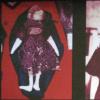Death of a poet with accents. Mikhail Lermontov. Death of poet. Analysis of Lermontov's poem "The Death of a Poet"
Around the duel Semyon Borisovich Laskin
Chapter Five "Haughty Descendants." WHO ARE THEY?
Chapter Five
"HANDLE DESCENDANTS". WHO ARE THEY?
So, let's try to touch on another seemingly unexpected mystery. Why has the literary debate around the textbook poem “The Death of a Poet” not subsided for almost a century and a half? What “blatant inconsistencies” does Irakli Andronikov declare when he writes about Lermontov’s masterpiece?
Why do scientists continue to be confused by the inconsistency of the beginning and end, the epigraph and the sixteen famous lines of the addition?
However, aren't there enough questions? Let's turn to famous texts.
Vengeance, sir, vengeance!
I will fall at your feet:
Be fair and punish the murderer
So that his execution in later centuries
Your rightful judgment was announced to posterity,
So that the villains can see her as an example.
Last sixteen lines, addition:
And you, arrogant descendants
The famous meanness of the illustrious fathers,
The fifth slave trampled the wreckage
The game of happiness of offended births!
You, standing in a greedy crowd at the throne,
Executioners of Freedom, Genius and Glory!
You are hiding under the shadow of the law,
The trial and the truth are before you - everyone be silent!..
But there is also God’s judgment, the confidants of depravity!
There is a terrible judgment: it awaits;
It is inaccessible to the ringing of gold,
He knows thoughts and deeds in advance.
Then in vain you will resort to slander -
It won't help you again
And you won't wash away with all your black blood
Poet's righteous blood!
So, what catches your eye when comparing?
Indeed, if in the epigraph the author, addressing the monarch, demands that he show justice (“Vengeance, sovereign!.. Be fair...”), then in the addition something completely unexpected appears: there is nowhere to expect truth, and especially justice, in this world (“Prev you are the judge and the truth - everyone be silent!..”).
The foreign murderer, whose execution could serve as an edification to the “villains,” in the final lines turns into criminals of a completely different kind, into executioners, executors of someone’s evil will. And the “canopy of the law,” the “throne,” the state serve as a reliable shelter for these people.
In other words, the murderer becomes the executioner, or rather, the executioners; possible justice on earth turns out to be impossible; Punishability turns into non-punishability; Instead of a Frenchman who came to a foreign country “to pursue happiness and rank,” in addition there appear “arrogant descendants” with a dubious pedigree, whose fathers were glorified by some “famous meanness...”.
What is this, a metaphor or an unsolved concreteness? The killer is known to everyone, he has a name, but who are the “descendants” if the conversation, suppose, is about different people? And what “known meanness” is Lermontov talking about?
The answers to the questions were never found...
Helplessness in front of the text, oddly enough, forced me more than once to make an almost anecdotal decision: the epigraph was removed. Why leave lines that confuse the meaning and make people puzzled?
For one hundred and fifty years of the poem's life and more than one hundred and twenty-five years since its first publication, approximately every thirty years the epigraph was either added or removed.
First one position, then another, has won and, unfortunately, continues to win to this day. So, from 1860 (first publication) to 1889, they decided not to publish the epigraph. It is assumed that the epigraph was added for censorship reasons, “by someone’s idle hand.”
In 1889, the publisher of Lermontov's collected works, P. Viskovatov, restored the epigraph, then the poem with the epigraph was reprinted in all publications before 1917.
From 1924 to 1950, Soviet publications published “The Death of a Poet” with an epigraph, but from 1950 to 1976 the opinion triumphed again “that the epigraph was placed in order to reduce the political harshness of the final lines,” however, by Lermontov himself. And since, as I. Andronikov concludes, this is a “trick” of the poet himself, then it is better to move the epigraph to the notes.
“In many complete copies the epigraph is missing,” wrote Irakli Andronikov in reprinted notes to various collected works of Lermontov, in particular to the collected works of 1983. “It follows from this that it was not intended for everyone, but for a certain circle of readers associated with a "yard". In the copy made by the poet’s relatives for A. M. Vereshchagina and, therefore, quite authoritative, there is no epigraph. But the copy with the epigraph appears in the investigative file. There is reason to think that Lermontov himself sought to bring the full text with an epigraph to Section III. The mention of a throne surrounded by a greedy crowd of freedom's executioners, a reminder of the impending reckoning concerned not only court dignitaries, but also the emperor himself. The epigraph should have soften the meaning of the last stanza: after all, if the poet turns to the emperor with a request to punish the murderer, therefore, Nicholas has no need to perceive the poem at his own address. At the same time, the poem circulated among the general public without an epigraph.
Based on the above considerations, in this edition of Lermontov the epigraph before the text of the poem was not reproduced.
But The poet did not achieve his goal: the epigraph was understood as a way to mislead the government and this aggravated Lermontov’s guilt.”
To be fair, it should be said that in some recent editions the epigraph appears again in the text of the poem.
In the notes of these collected works an explanation is introduced: “By its nature, the epigraph does not contradict the sixteen concluding lines. Appealing to the king with a demand to severely punish the murderer was unheard of impudence... There is no reason to believe, therefore, that the epigraph was written with the aim of softening the severity of the final part of the poem. In this edition, the epigraph is introduced into the text."
The variability of opinions in relation to the epigraph suggests that the debate may still continue, that the truth has not been found, that the explanations in the comments of either the removal of the epigraph or its restoration occur without sufficient evidence, according to the internal feeling of the publishers. The poem “The Death of a Poet” occupies an exceptional, one might say, turning point not only in Lermontov’s creative biography, but also in his fate.
Why did Lermontov need an epigraph? Maybe even now our knowledge is not perfect enough? It seems to us that we know more about the classics than their contemporaries, and sometimes even more than themselves, but we cannot help but understand that we will always miss what our contemporaries knew and what the classics knew about themselves. This means that the search for truth will be endless.
Oh, if only I could be close to Lermontov, take part in his dispute with Stolypin, when the poet, “biting the pencil, breaking the lead,” without waiting for his opponents to leave, begins to write angry final lines about the “confidants of depravity” responsible for the death of Pushkin. And Stolypin, trying to reduce Michel’s anger to a joke, will say: “La po?sie enfante!” (Poetry is relieved of its burden! - fr.) If!..
Yes, if we filled the void of our ignorance with new facts, then perhaps the poem “The Death of a Poet” would strike us not with its contradictions, which Lermontov scholars still continue to note to this day, but with its integrity.
But it was precisely twice - both without an epigraph and without an addition, and then with an epigraph and with an addition - that Benckendorff and Nicholas I read the poem; in the final version, it was delivered to them by agents of the III Division, on like this list and their harsh resolutions and sentences stand.
Let's try, by collecting eyewitness accounts, to imagine the situation in which Lermontov was in those distant days...
The history of the creation of “Death of a Poet” is known. Fifty-six lines of the elegy were written by Lermontov on January 30–31, 1837. The found list, dated January 28, is probably erroneous: it is unlikely that the poems appeared during the poet’s lifetime. However, rumors about the death of Pushkin were already stirring St. Petersburg.
“Lermontov’s poems are wonderful,” A. I. Turgenev wrote in his diary.
“Of the poems that appeared on his death, Lermontov’s is more remarkable than the others,” N. Lyubimov wrote on February 3.
“I just received a poem on the Death of Pushkin, written by one of our classmates, Life Hussar Lermontov. It was written hastily, but with feeling. I know that you will be happy, and I am sending it to you...” wrote M. Kharenko on February 5.
“...Here are the poems that a certain Mr. Lermantov, a hussar officer, composed on his death. I find them so beautiful, they have so much truth and feeling that you need to know them.<…>Meshchersky brought these poems to Alexandra Goncharova, who asked for them for her sister, who was eager to read everything that concerns her husband, who was eager to talk about him, blame herself, and cry.”
But not only the world accepts Lermontov’s elegy kindly, they are loyal to poetry and power. This is how A.I. Muravyov records a conversation with Mordvinov, his brother, head of the office of the III Department:
“Late in the evening Lermontov came to me and enthusiastically read his poems, which I really liked. I did not find anything particularly sharp in them because I did not hear the last quatrain, which aroused a storm against the poet<…>He asked me to speak to Mordvinov in his favor, and the next day I went to see my relative.
Mordvinov was very busy and out of sorts. “You are always with old news,” he said. “I read these poems to Benckendorff a long time ago, and we did not find anything reprehensible in them.” Delighted by this news, I hurried to Lermontov to calm him down, and, not finding him at home, I wrote to him word for word what Mordvinov had told me. When I returned home, I found his note, in which he again asked for my intercession, because he was in danger.”
So, the attitude of the authorities towards “The Death of a Poet” instantly changes with the appearance of added lines. The resonance among the reading public also increases sharply.
We find the first mention of new lines in the poem “The Death of a Poet” in a letter from A.I. Turgenev to the Pskov governor A.N. Peschurov.
“I am sending poems that are worthy of their subject. Other stanzas are also circulating, but they are not by this author and, they say, have already brought trouble to the true author,” wrote A. I. Turgenev on February 13.
“How wonderful it is, Katish, isn’t it? - writes M. Stepanova in Tyutcheva’s album, rewriting Lermontov’s poems. “But perhaps too free-thinking.”
Finally, the assessment of E. A. Arsenyeva, Lermontov’s grandmother:
“Mishynka, in his youth and flightiness, wrote poems on the death of Pushkin and at the end he wrote inappropriately on the honor of the courtiers.”
But among the listed evidence, a document of exceptional importance stands out - these are the resolutions of Count A. X. Benckendorff and Nicholas I on the list of the poem, delivered to the III Department on February 17–18.
“I have already had the honor to inform Your Imperial Majesty that I sent a poem by the hussar officer Lermontov to General Weimarth, so that he would interrogate this young man and keep him at the General Staff without the right to communicate with anyone from the outside until the authorities decide the question of his future fate and about the taking of his papers both here and at his apartment in Tsarskoe Selo. The introduction to this work is impudent, and the end is shameless freethinking, more than criminal. According to Lermontov, these poems are being distributed in the city by one of his comrades, whom he did not want to name.
A. Benckendorf."
The Emperor writes his own opinion:
“Nice poems, nothing to say, I sent Weymarn to Tsarskoye Selo to inspect Lermontov’s papers and, if other suspicious ones are discovered, to arrest them. For now, I ordered the senior physician of the Guards Corps to visit this gentleman and make sure that he was not insane; and then we will deal with him according to the law.”
An investigation into the case of “inadmissible verses” begins. Lermontov is interrogated “without the right to communicate with anyone”; he is detained as a dangerous “freethinker.”
But Lermontov’s poems were not the only ones in those days. More than twenty poets, among whom were Vyazemsky, Tyutchev, Zhukovsky, Yazykov, and Koltsov, responded with mournful lines. And yet only “The Death of a Poet” was destined for such a fate.
“The introduction... is impudent, and the end is shameless freethinking, more than criminal.”
“... isn’t he crazy”?!
These words will be written by people who well remember the “daring” and “criminal freethinkers” who came to Senate. It turns out that it is impossible to stop the spread of freethinking writing.
Then A.I. Turgenev will inform his brother abroad:
“Here are poems with a criminal stanza, which I learned about much later than the poems.”
So, the emperor and Benckendorff consider both entry and addition as a crime. And yet, for more than a century, the opinion has periodically triumphed that only the last lines of “The Death of a Poet” are the “criminal stanza.”
“The pistol shot,” Herzen wrote in 1856, “which killed Pushkin, awakened Lermontov’s soul. He wrote an elegiac ode in which, denouncing the base intrigues that preceded the duel, the intrigues started by literary ministers and spy journalists, he exclaimed with youthful indignation: “Vengeance, sir, vengeance!” This one inconsistency The poet redeemed himself by exile to the Caucasus.”
In 1861, the collection “Russian Secret Literature” was published in London, in which the poem was published without introductory lines. The epigraph was removed by the publishers as being contrary to the democratic idea... of Lermontov himself.
Strange conclusion! It turns out that Lermontov wanted to hide behind the loyal lines of the epigraph, but the government found his compromise insufficient, and Benckendorff ordered Lermontov to be arrested, and Nikolai wanted to make sure whether Lermontov was “not crazy”?
No, something is wrong! Why didn’t the arrested Lermontov and Raevsky use their, one might say, witty trick during interrogations, didn’t ask for leniency, but seemed to forget about the saving lines? Is it because it was clear to them how little “saving” there was in them?!
The absence of an epigraph in Vereshchagina’s copy, I think, explains little. Poems were distributed in two periods; it is enough to recall the words of A.I. Turgenev. S. N. Karamzina’s list also did not have an epigraph.
If we talk about Odoevsky’s copy, it was self-censoring. Odoevsky hoped to publish “The Death of a Poet” and, of course, as an experienced journalist, he would never have offered the censor the latter option. However, the proposed elegiac text was not allowed to be published.
One can hardly agree with the opinion that Lermontov, using the epigraph as a “trick,” was counting on a circle of readers associated with the court.
The distribution of poetry is an uncontrollable act; it does not depend on the will of the author. The poem was much more rewritten by democratic readers, officials and students. If we talk about the courtyard, then it was there that Lermontov’s poem was called “an appeal to the revolution.”
But maybe we don’t have enough facts to explain the poem “The Death of a Poet”? Perhaps we are unaware of some circumstances that forced Lermontov not only to write sixteen final lines, but also to resort to an epigraph?
Let’s try once again to dwell on Lermontov’s dispute with the chamberlain N.A. Stolypin, who brought echoes of high society conversations into the poet’s house...
...The singer’s shelter is gloomy and cramped,
And his seal is on his lips.
Seal- a symbol of eternal silence... “Chrysostom stopped” - V. Dahl’s dictionary seems to interpret about Pushkin.
There is no call for retribution yet, there is hopeless grief. On January 29, Lermontov writes the same thing that many of his contemporaries write in poetry and letters.
“Dear Alexander!
I’ll tell you some unpleasant news: yesterday we buried Alexander Pushkin. He fought a duel and died from his wound. A certain Mr. Dantes, a Frenchman, ex-page of the Duchess of Berry, favored by our government, serving in the cavalry guards, was received everywhere with Russian cordiality and paid for our bread and salt and hospitality with murder.
You have to be a soulless Frenchman to raise a sacrilegious hand against the inviolable life of a poet, which is sometimes spared by fate itself, a life that belongs to an entire people.<…>
Pushkin made a mistake by getting married because he remained in this whirlpool of great light. Poets with their calling cannot live in parallel with society; they were not created that way. They need to create a new parnassus for themselves to live in. Otherwise, they will face a bullet, like Pushkin and Griboedov, or even worse, ridicule!!”
BESTUZHEV: “We must be soulless Frenchman to raise a sacrilegious hand against the inviolable life of the poet..."
LERMONTOV: “His killer coolly Strike... there is no escape: Empty the heart beats evenly, the pistol does not tremble in my hand.”
BESTUZHEV: « <…>life of a poet,<…>a life that belongs to an entire people.”
LERMONTOV: “Laughing, he boldly despised the Earth’s foreign language and customs; He could not spare our glory, I couldn’t understand at this bloody moment, Why did he raise his hand!..”
BESTUSHEV: “Poets with their calling cannot live in parallel with society<…>. Otherwise they'll run into a bullet<…>or, worse, to ridicule!
LERMONTOV: “His last moments were poisoned by an insidious whisper mocking ignoramuses...""AND for fun fanned a barely hidden fire.”
The elegy, before the appearance of the added lines, reflected the general conversations that arose everywhere in the days of Pushkin’s death.
But in a few days, the “song of sadness,” as Nestor Kotlyarevsky calls “The Death of a Poet,” will turn into a “song of anger.”
Lermontov and Raevsky are arrested. In prison they write detailed “explanations.”
Most researchers consider the “explanations” of Lermontov and Raevsky to be sincere; others, although they confirm the sincerity, still see “self-defense” in them.
But if the arrested person pursued defensive goals, he had to think about how not to give the enemy facts that were dangerous to himself. And caution itself ruled out sincerity. And what sincerity is there in the claws of the police? Both Lermontov and Raevsky understood that every sincere word they said would make the punishment heavier and the sentence harsher. Raevsky's note to Lermontov's valet demands that Lermontov not trust his feelings, not be sincere.
“Andrey Ivanovich! - Raevsky addressed Lermontov’s valet. - Quietly hand over this note and papers to Michel. I submitted it to the Minister. It is necessary so that he answers according to her, and then the matter will end in nothing. And if he starts talking differently, it could be worse.”
Let us compare the texts of the “explanations” of Lermontov and Raevsky.
Lermontov:
“I was sick when the news of Pushkin’s unfortunate duel spread throughout the city. Some of my friends brought it to me disfigured by various additions, alone, adherents our best poet, They told with the most lively sadness how petty torments and ridicule he had been persecuted for a long time and, finally, was forced to take a step contrary to the laws of earth and heaven, defending the honor of his wife in the eyes of the strict world. Others, especially ladies, justified Pushkin’s opponents, called him (Dantes. - S.L.) the noblest man, they said that Pushkin had no right to demand love from his wife, because he was jealous, bad-looking - they also said that Pushkin was a worthless person, and so on... Without, perhaps, the opportunity to defend the moral side of his character, no one has not responded to these latest accusations.
An involuntary but strong indignation flared up in me against these people, who were attacking a man who had already been slain by the hand of God, who had not done them any harm and was once praised by them: and the innate feeling in my inexperienced soul, to defend everyone innocently condemned, stirred in me even more strongly because caused by disease of irritated nerves. When I began to ask on what grounds they rebelled so loudly against the murdered man, they answered me: probably to give themselves more weight, that the entire upper circle of society is of the same opinion. I was surprised - they laughed at me. Finally, after two days of anxious waiting, the sad news came that Pushkin had died; along with this news came another, comforting for the Russian heart: the Sovereign Emperor, despite his previous errors, generously gave a helping hand to his unfortunate wife and his little orphans. The wonderful contrast of His action with the opinion (as I was assured) of the highest circle of society increased the former in my imagination and denigrated even more the injustice of the latter. I was firmly convinced that the dignitaries of state shared the noble and merciful feelings of the Emperor, the God-given protector of all the oppressed, but nevertheless I heard that some people, solely through family ties or as a result of search, belonging to the highest circle and enjoying the merits of their worthy relatives - some did not cease to darken the memory of the murdered man and dispel various rumors unfavorable to him. Then, as a result of a rash impulse, I poured out the bitterness of my heart onto paper, expressed in exaggerated, incorrect words the discordant clash of thoughts, not believing that he wrote something reprehensible, that many may mistakenly take personally expressions that are not intended for them at all. This experience was the first and last of its kind, harmful (as I thought before and now think) for others even more than for myself. But if there is no excuse for me, then youth and ardor will at least serve as an explanation, for at that moment passion was stronger than cold reason ... "
The argument, it turns out, was with the ladies, supporters of Dantes, and Lermontov, filled with admiration and gratitude to the Tsar for the “wonderful contrast of His act,” did not at all consider ... “reprehensible.”
Let's look at Raevsky's "explanation":
“...Lermontov has a special penchant for music, painting and poetry, which is why the hours we both had free from service were spent in these pursuits, especially in the last three months, when Lermontov did not travel due to illness.
Pushkin died in Genvar. When on the 29th or 30th this news was reported to Lermontov by the city gossip about unnamed letters that aroused Pushkin’s jealousy and prevented him from composing in October and November (the months in which Pushkin, according to rumors, exclusively composed), then that same evening Lermontov wrote elegiac poems that ended with the words:
And his seal is on his lips.
Among them, the words: “Didn’t you persecute his free, wonderful gift?” mean unnamed letters - which is completely proven by the second two verses:
And excited for fun
A slightly hidden fire.
These poems appeared before many others and were the best of all, which I learned from the review of the journalist Kraevsky, who reported them to V. A. Zhukovsky, princes Vyazemsky, Odoevsky and others. Lermontov's acquaintances constantly said greetings to him, and even rumor spread that V. A. Zhukovsky read them to His Imperial Highness the Sovereign Heir and that He expressed his high approval.
This success made me happy, out of love for Lermontov, but turned Lermontov’s head, so to speak, out of a desire for fame. Copies of the poems were distributed to everyone, even with the addition of 12 (16) verses containing an attack against persons not subject to Russian court - diplomats and foreigners, and their origin is, as I am convinced, the following:
His chamber cadet brother Stolypin came to Lermontov. He spoke unfavorably about Pushkin, said that he behaved indecently among people of high society, that Dantes was obliged to act as he did. Lermontov, being, so to speak, indebted to Pushkin for his fame, involuntarily became his partisan and, due to his innate ardor, behaved ardently. Him and half the guests they argued, among other things, that even foreigners should spare the wonderful people in the state, that Pushkin, despite his insolence, was spared by two sovereigns, and even showered with favors, and that then we should no longer judge his obstinacy.
The conversation got hotter the young chamberlain Stolypin reported opinions that gave rise to new disputes - and in particular insisted that foreigners do not care about Pushkin’s poetry, that diplomats are free from the influence of laws, that Dantes and Heckern, being noble foreigners, are not subject to either the laws or the Russian court .
The conversation took a legal direction, but Lermontov interrupted it with words, which he later almost completely placed in verse: “if there is no law and earthly judgment over them, if they are the executioners of a genius, then there is God’s judgment.”
The conversation stopped, and in the evening, returning from visiting, I found a well-known addition from Lermontov, in which the entire dispute was clearly expressed.
Once it occurred to us that the poems were dark, that we could suffer for them, because they could be reinterpreted at will, but, realizing that the name Lermontov was completely signed under them, that the highest censorship would have stopped them long ago if they considered it necessary and that the Sovereign Emperor showered the Pushkin family with favors, trace. valued him - they decided that, therefore, it was possible to scold Pushkin’s enemies - they left things to go on as they went<…>.
<…>We did not have and could not have any political thoughts, much less those contrary to the order established by age-old laws.
<…>We are both Russian at heart and even more loyal subjects: here is further proof that Lermontov is not indifferent to the glory and honor of his Sovereign...”
So, Lermontov’s “ladies”, defending Dantes’ right to love, turned into Raevsky’s cadet chamberlain Stolypin, defending the right of noble foreigners not to take into account Russian laws.
Lermontov speaks of some people, “solely due to family ties or as a result of seeking, belonging to the highest circle and enjoying the merits of their worthy relatives." (But what about those famous for their “famous meanness”?!)
Even more revealing are the drafts of Raevsky’s “explanation” attached to the “case”:
“He [and his partner] proved by the way. And half of the guests proved, among other things, that [everyone], even a foreigner, [should] even foreigners should spare the people who are remarkable in the state.”
“The young chamber cadet Stolypin [and who else I don’t remember] [transmitted]<…>»
“The conversation took a [sex] legal direction<…>».
Raevsky's drafts are self-revealing. Which “half” of the guests? Who was with Lermontov besides Stolypin? What a “political”<…>direction" accepted the dispute between Lermontov and his opponents? What does “Lermontov's party” mean? Isn’t this a circle of “dangerous freethinkers” like him and Raevsky? And what does it mean: “I don’t remember who”?!
There are enough reservations to expand the “case”, for additional interrogation of Stolypin, but... the investigation ends quickly.
Raevsky is sent to the Olonets province, Lermontov to the Caucasus, which is not considered too severe a punishment.
Let us remember the caution of those arrested, their forced, understandable repentance, in this situation, of course, trick.
Why did the III Department allegedly not notice the discrepancy between the testimony of those arrested and the content of “Death of a Poet”?
Literary critic V. Arkhipov finds the easiest explanation - he calls Benckendorff a “close-minded” person. But, firstly, it is generally known that Benckendorff was a most experienced and cunning policeman, and he would have had the intelligence to detect insincerity in his testimony, to reduce the explanation to insignificant details, to a harmless conversation with the “ladies” about love. And Benckendorff was not the only one in the III Division - it is no coincidence that Lermontov draws Dubelt’s wolf profile in the margins of the list of “The Death of a Poet”.
But if we assume that the III Division - in that acute situation of January-February 1837 - was simply unprofitable to continue the trial of an unknown poet, it is unprofitable to expand the investigation, attract new people, make confrontations, but on the contrary, where more profitable regard the prank of the twenty-two-year-old cornet, unknown to anyone, as a trifle, try to quickly stop the process, expel both those arrested from St. Petersburg and thus calm down public opinion? And is specification necessary - who did the poet suspect in each line of the addition? Where to put the lines about “confidants of debauchery”, “standing at the throne”? Who are they, “the executioners of Freedom, Genius and Glory”? Lermontov was not talking about secular “ladies”. It is no secret that knowledge of the particular, the concrete, can in some cases reveal more deeply and more clearly the dimensions of the general evil. But, in addition, the artist’s path to truth lies in different ways. And for Lermontov, the move from the particular to the general, from the specific to a broad generalization is very possible.
I. Andronikov, in his famous work “Lermontov and the Desk...”, cites an entry on the list “Death of a Poet”, owned by Moscow University employee N. S. Dorovatovsky. This list, Andronikov points out, “came from a circle of people close to Herzen.”
N. S. Dorovatovsky, pondering who Lermontov meant when speaking about “confidants of debauchery” and “arrogant descendants,” lists a number of possible surnames:
“Catherine II’s favorites: 1) Saltykov. 2) Poniatowski. 3) Gr. Orlov (Bobrinsky, their son, raised in the house of a stoker, and then chamberlain Shkurin). 4) Vysotsky. 5) Vasilchikov. 6) Potemkin. 7) Zavadovsky. 8) Zorich - 1776.
Elizabeth and Razumovsky have a daughter, Princess Tarakanova.
Assassins of Peter III: Orlov, Teplov, Baryatinsky. Roman Vorontsov has three daughters: 1) Catherine, mistress of Peter III. 2) Dashkova. 3) Buturlina...
Pavel’s mistress Sofya Osipovna Chartoryzhskaya, she has a son Simeon - 1796. The killers of Ivan Antonovich are Vlasyev and Chekin, the conspirator Mirovich.”
I. Andronikov does not stop at just one name. Other researchers also considered Dorovatovsky’s list and declared it “random.”
Meanwhile, the list contains the name of a regicide (or rather, regicide). The life paths of their direct descendants repeatedly intersected with the life paths of Lermontov.
I'm talking about Prince Alexander Ivanovich Baryatinsky, the future field marshal general, Lermontov's classmate at the school of guard ensigns and cavalry cadets, Lermontov's worst and long-term enemy.
Baryatinsky’s malicious attitude towards Lermontov throughout Baryatinsky’s long life even now seems incomprehensible.
Let us turn to the biography of the “conqueror of the Caucasus”. Will memories of him help to reveal the mystery of a few added lines of the poem “The Death of a Poet”?
Baryatinsky’s personal biographer Zisserman wrote about his hero:
“All cadets (at the school of guards ensigns. - S.L.) there were two hundred and forty-five people, but of their number only two acquired general, loud fame: one was Lermontov, as a wonderful poet, who unfortunately died early, the other was a natural talent, a conqueror of the Caucasus and a statesman.”
The military career of both cadets is somewhat similar in its beginning. But if Lermontov, having studied at Moscow University, decides to enter the school of guard ensigns, then Baryatinsky is only being prepared for university, however, without going there, he changes his decision.
Unlike Lermontov, Baryatinsky studies at the cadet school extremely poorly, however, it is not knowledge, but other qualities that provide Baryatinsky with leadership in the military environment. Here is how the manager of his estates, Insarsky, talks about these years of A.I. Baryatinsky:
“Prince Alexander Ivanovich Baryatinsky told me that he studied at the Guards school in the most disgusting way. Time passed in revelry and pranks, mostly of intricate invention. Red tape was also not the last thing<…>. When the time came for graduation, the prince turned out to be completely untenable, and he was asked to join the army or, if he wanted, to serve in the guards, but remain for another year at the guards school<…>. Thus, at the end of 1833, he entered the Gatchina Life Cuirassier Regiment, but this step did not destroy his shortest connections with his former comrades, so that he only belonged to the Cuirassier Regiment in form, but in soul and heart to the Cavalry Guard. The interests of the Cavalry Regiment, rather than the Cuirassier Regiment, were dear to him. Everything that was done in this regiment was incomparably more expensive for him than what happened in Cuirassier. He considered himself to belong to the society of cavalry officers and shared their views, beliefs and various demonstrations. Everything that pleased the Cavalry Regiment also pleased him; everything that the cavalry officers liked was what he liked. In a word, he was the most zealous member of the cavalry guard family.”
Insarsky's testimony is not much different from Zisserman's.
“The two-year service in the Gatchina cuirassiers was, in accordance with the cavalry rules of that time, a series of revelries and pranks of an idle social life. All this, however, was not considered anything reprehensible, not only in the eyes of comrades and acquaintances, but also in the eyes of higher authorities, even on the contrary, as the consequences of youth, daring, characteristic of a young man in general, and a cavalryman in particular, all these revelries and hangings did not contain anything dishonest; they gave the highest authorities a special kind of pleasure, hidden under the guise of severity ... "
Of the famous pranks of the young Baryatinsky, two cases of cheerful “funerals” of people are known, which were somehow unpleasant for the entire “company” of his friends, cavalry officers. Just a “funeral” - an organized procession towards the cemetery with an empty coffin of the seemingly deceased commander of the cavalry regiment Yegor Grunvald, who was calmly having dinner on his veranda and looking at this fun with indignation.
The second “funeral” was arranged for the chamberlain Borch, the same “permanent secretary of the order of cuckolds.” However, I wrote about Borja in previous chapters.
The punishment of Baryatinsky, his arrest turns out to be only a pretext for the continuation of high society amusements.
“Having examined the room,” said Insarsky, “assigned for him, the prince at the same hour ordered that furniture makers, upholsterers, etc., appear the next day and clean the room in the most luxurious and magnificent manner. One of the famous restaurants was ordered to prepare an elegant dinner for ten to twenty people every day... The prince said that the time of arrest was the most fun and ruinous for him..."
The guardhouse did not turn out to be an obstacle to communicating with the “mothers” of the neighboring educational home.
Here is an excerpt from the artist Gagarin’s letter to his parents:
"March 6, 1834. You often tell me about the company of young people. I wouldn’t want you to get the wrong idea about him, firstly, I devote little time to them, but sometimes I go to spend the rest of the evening at the Trubetskoys, where a small society of exceptionally kind and honest young men, very friendly with each other, gathers. Everyone here brings their own little talent and, to the best of their ability, contributes to having fun and freely having fun, much better than in all the prim salons... Sometimes we do gymnastics, wrestling and various exercises. I discovered here that I am much stronger than I thought. After a ten-minute intense struggle, to the loud approval of the rest of society, I threw Alexander Trubetskoy, who was considered the strongest of the entire company, to the floor<…>.
Members of this circle are Alexander and Sergei Trubetskoy, officers of the Cavalry Regiment, Baryatinsky - officer of the Cuirassier Regiment<…>, sometimes Dantes, a new cavalry guard who is full of wit and very funny."
Trubetskoy’s “eternal” commitment to the history of Pushkin’s duel, his friendship with Georges Dantes, the empress’s undeniable affection for him make the figure of Trubetskoy not only extremely important, but also force us to take a more serious look at Lermontov’s acquaintance with Trubetskoy and his closest friends, among whom the prince’s personality is especially noticeable Alexander Ivanovich Baryatinsky.
As a characteristic of the relationship between A.I. Baryatinsky and M.Yu. Lermontov, there is an event that occurred in the Trubetskoys’ house. I will cite an interesting episode described by the biographer of Prince Alexander Ivanovich.
“In 1834 or 1835, one evening, Prince T[rubetskoy] had a fairly large meeting of young officers, cavalry guards and from other regiments. Among them were Alexander Ivanovich Baryatinsky and Lermontov, former comrades from the cadet school. The conversation was lively, about various subjects, among other things, Lermontov insisted on his always-on idea that a person who has the strength to fight mental illnesses is not able to overcome physical pain. Then, without saying a word, Baryatinsky took off the cap from the burning lamp, took the glass in his hand and, without increasing his speed, with quiet steps, pale, walked across the entire room and placed the lamp glass on the table intact; but his hand was burned to the bone, and for several weeks he wore it in a sling, suffering from a severe fever.”
In the spring of 1835, Baryatinsky left as a “hunter” for the Caucasus, where he was seriously wounded. The situation turns out to be critical. Baryatinsky draws up a will in which he bequeaths a ring to Alexander Trubetskoy and a horse to Sergei Trubetskoy.
However, the wounded man recovers and, like a hero, returns to St. Petersburg. Thanks to the friendship of Baryatinsky’s mother, Baroness Keller, with the empress, to whom she “went whenever she wanted, easily,” Baryatinsky is visited by the Tsarevich and enlisted in his personal retinue. By this time Baryatinsky was already a captain of headquarters.
Together with the appointment to the retinue, “which amounted (according to Dolgorukov. - S. Ya.)<…>the object of the ardent desires of all guards officers,” Baryatinsky’s circle of friends narrows significantly. The closest remain Trubetskoy, Kurakin, Nesselrode, Dantes, “ultra-fashionables”, children of dignitaries.
Baryatinsky's position after the duel is extremely important to us. Like Trubetskoy, Baryatinsky is not embarrassed by the “sobs” and “pathetic” babble of the secular crowd; he publicly proclaims Dantes's act as chivalrous.
Baryatinsky's letters to Dantes in the guardhouse, published by Shchegolev, are striking in their cynicism.
“I have been missing something since I didn’t see you, my dear Heckern, believe me that I did not stop my visits, which brought me so much pleasure and always seemed too short to me, but I had to stop them due to the severity of the guard officers.
Think about it, I was outrageously sent away from the gallery twice under the pretext that this was not a place for my walks, and two more times I asked permission to see you, but I was refused. Nevertheless, continue to believe in my sincere friendship and the sympathy with which our entire family treats you.
Your devoted friend
Baryatinsky."
Of course, Baryatinsky’s position seems defiant to many. In the Nesselrode salon, among his friends, Baryatinsky openly speaks in support of Dantes. The light is “silent”, but rather sympathetically silent, realizing what power is behind this person’s shoulders.
Before deciding whether Baryatinsky’s name is connected with the famous words of Lermontov’s addition, let’s try to evaluate in more detail the relationship between Lermontov and Baryatinsky after January 1837.
Lermontov's first biographer P. A. Viskovatov, who spent about two years under Prince A. I. Baryatinsky, more than once heard the prince's sharply negative reviews of the great poet.
P. A. Viskovatov, and after him other biographers, assumed that Baryatinsky could not forget his cadet poem to his classmate.
“In “Ulansha,” the most modest of these poems,” wrote P. A. Viskovatov, “the transition of a cavalry squadron of a cadet school to Peterhof and a night halt in the village of Izhora is depicted. The main character of the adventure is the Uhlan cadet “Lafa” (Polivanov. - S.L.), sent ahead by the lodger. The heroine is a peasant girl.
The “Gospital” describes the adventures of fellow cadets: the same Polivanov, Shubin and Prince Alexander Ivanovich Baryatinsky.
All these works of Lermontov, of course, were intended only for a close circle of comrades, but they penetrated, as we said, beyond the walls of the “school”, walked around the city, and those of the heroes mentioned in them who had to play a disgraceful, funny or offensive role, were indignant at Lermontov. This indignation grew along with the poet's fame, and thus many of his school friends turned into his worst enemies. One of these, a person who later achieved an important state position, became indignant every time we talked to him about Lermontov. He called him “the most immoral man” and “a mediocre imitator of Byron” and wondered how anyone could be interested in him to collect materials for his biography. Much later, when we came across the school works of our poet, we understood the reason for such anger. These people even interfered with his career, which they themselves were successfully pursuing.”
Baryatinsky, being in the retinue of the Tsarevich, could, of course, do a lot of bad things to the “disgraced” Lermontov.
Viskovatov repeats his assumption about the reasons for the resentment of Prince A.I. Baryatinsky several times.
“Alexander Ivanovich Baryatinsky,” Viskovatov wrote in “Russian Antiquity,” “played a very unenviable role in a Don Juan adventure of a very unattractive nature, proposed by a boastful young man in a bet for half a dozen champagne...”
And here is a comment from one of the first publishers of Lermontov’s collected works, Efremov, who placed some lines from “Gospital” in the second volume.
“At M. I. Semevsky we saw one number of handwritten magazine No. 4 “School Dawn Magazine”. This number begins with Lermontov’s poem “Ulansha” and ends with his poem “Gospital”, under which he also signs “Count Darbecker”.
The last poem describes the adventures of two school friends of Lermontov: Prince A. I. Baryatinsky and N. I. Polivanov (Lafa).
In the dark, Prince Baryatinsky mistakenly hugs a blind, decrepit old woman instead of a beautiful maid, she screams, a servant runs in with a candle, rushes at the prince and beats him. Polivanov, who was with the beauty, comes to the rescue and helps the prince out.”
On the pages of “Russian Thought” P. A. Viskovatov again repeats Baryatinsky’s opinion about Lermontov:
“Field Marshal Prince Baryatinsky, Mongo’s comrade at the school of guards ensigns<…>spoke very unfriendly about him, as well as about Lermontov. But there were other reasons for this.”
Already at the beginning of our century, Viskovatov’s student E. A. Bobrov published excerpts from Viskovatov’s letter to him regarding the attitude of Prince Baryatinsky to Lermontov. The letter, according to Bobrov, was personal and was not subject to “publication in full,” so most of it was presented in a paraphrase.
“The more important question is Lermontov’s attitude... towards Prince Baryatinsky. Viskovatov knew the latter very closely, because he served as his personal secretary for many years.
Baryatinsky, according to Viskovatov’s description, was very smart and extremely talented. But if a person has “a fathom of intelligence and a fathom of pride, then in the end the fool in him will defeat the smart person.” All such overly proud people did not tolerate Lermontov. There was another special reason for Baryatinsky’s dislike for Lermontov.
Lermontov and Stolypin (Mongo, - S.L.) managed to save one lady from the importunity of a certain high-ranking official. The latter suspected Baryatinsky of the trick because he was courting this lady. Both personal failure and the high-ranking person’s indignation at him prompted Baryatinsky to hate Stolypin and Lermontov. But the most important reason for Baryatinsky’s unquenchable hatred of Lermontov must still be considered the description of the prince’s failures in the erotic poem “Hospital”. With this poem, Baryatinsky was stung in his very Achilles heel, because the incident was conveyed, although cynically, but quite truly, only minor piquant details were added. With his immense pride, could Baryatinsky ever forget and forgive this poem, published in a handwritten journal and which made Baryatinsky a laughing stock in the eyes of his comrades.
From what has been said, it is clear how unpleasantly surprised the prince was, who really wanted Viskovatov to compile his biography, which had already begun, when one day his secretary, talking to him about Lermontov, informed him that he was going to write a biography of the great poet. Baryatinsky was sincerely surprised at how there are people who think of collecting materials about such a person, about Lermontov. He could not imagine that posterity could judge Mikhail Yuryevich differently than his schoolmates who ridiculed him. Baryatinsky began to persistently dissuade his young secretary from this enterprise, saying that a biography of Lermontov should not be written. “Talk to Smirnova about this,” he advised. “I’ll introduce you to her.” “He introduced me to Smirnova,” writes Viskovatov. “And she, of course, at Baryatinsky’s request, also dissuaded me from writing a biography of Lermontov.”
Baryatinsky explained the dislike of Lermontov on the part of Nikolai Pavlovich himself with such an original comparison, supposedly at that time they looked at the country like billiards, and did not like anything to exceed the monotonous surface of the billiard surface, and although Lermontov was in himself a highly unpleasant personality, but still stood out above the level. Baryatinsky admitted this, despite all his sincere hatred of the great poet. In the same way, that is, by the fact that he “stood out,” Baryatinsky explained the well-known dislike towards himself ... "
Baryatinsky’s friends also treated Lermontov poorly. Thus, Count Adlerberg, the Tsarevich’s adjutant, like Baryatinsky, spoke extremely poorly of Lermontov. “I will never forget,” wrote D. Merezhkovsky, “how in the eighties, during my own youthful infatuation with Lermontov, my father conveyed to me a review of him by Count Adlerberg, the minister of the court under Alexander II, an old man who was personally acquainted with Lermontov : “You can’t imagine what a dirty man he was!”
Let's look at fragments of "Gospital", a Junker poem, published either in separate lines or with abbreviations in different publications.
In fact, only Lermontov’s fellow cadets remembered Lermontov’s poem in its entirety, one of whom donated it to the Lermontov Museum.
Here are the lines about Baryatinsky:
One day, after a long debate
And having drained three bottles,
From the book Historical Tales author Nalbandyan Karen EduardovichWhat will the descendants say? A person is rarely given the opportunity to find out what they will say about him after death. Just imagine: you open the morning newspaper, and there you are. In a black frame. And an obituary. Titled "Death of a Death Dealer". And to this day you yourself have been a merchant
From the book General Regulations on Peasants Emerging from Serfdom author Romanov Alexander NikolaevichChapter Five About the dismissal of peasants from rural societies and registration with societiesSection One ABOUT THE DISMISSAL OF PEASANTS FROM RURAL SOCIETIES130. To dismiss peasants from rural societies, the following general conditions must be met: 1) so that a peasant who wants to receive
From the book Conquest of the Inca Empire. Curse of the Lost Civilization by Hemming John From the book Great Prophets from Nostradamus to Vanga author Kosorukov YuriHeirs and descendants Instead of an epilogue Once upon a time, every European court had its own astrologer, or even several at once. This was especially common in the 15th–17th centuries (although predictive astrology has its roots in history). The clairvoyants predicted to their king
From the book Russian Ball of the 18th – early 20th centuries. Dances, costumes, symbols author Zakharova Oksana YurievnaChapter Five XL At the beginning of my novel (See the first notebook) I, like Alban, wanted to describe the St. Petersburg Ball; But, distracted by empty dreams, I began to remember the legs of the ladies I knew. In your narrow footsteps, O legs, one can go astray! With the betrayal of youth
From the book Ancestors of the Gods. Lost civilization of Lemuria by Joseph FrankCHAPTER FIVE COLONEL MU Adventures come to adventurers. Slogan of the Churchward Family The history of Atlantis had two great champions in the ancient and modern world. Plato, the most influential thinker at the dawn of Western civilization, reproduced the legend
From the book Eroticism Without Shores by Eric Naiman From the book Around the Silver Age author Bogomolov Nikolay AlekseevichChapter Five At a concert, the Kremnevs met some student whom they knew as a boy, and at the next session a new member appeared - Evgeniy Petrovich Kozhin. The society that gathered at the Kremnevs must have had a special attractive force, and everyone who got there
From the book Tibet: The Radiance of Emptiness author Molodtsova Elena Nikolaevna From the book Scythians: the rise and fall of a great kingdom author Gulyaev Valery IvanovichSauromatians - descendants of the Amazons “Beyond the Tanais River,” writes Herodotus, “are no longer Scythian lands, but the first land holdings there belong to the Sauromatians. The Sauromates occupy a strip of land to the north, starting from the depression of Lake Maeotia, for fifteen days' journey, where there are no wild,
From the book The People of Muhammad. Anthology of spiritual treasures of Islamic civilization by Eric Schroeder From the book From Dante Alighieri to Astrid Ericsson. History of Western Literature in Questions and Answers author Vyazemsky Yuri PavlovichChapter Five
From the book Favorites. Young Russia author Gershenzon Mikhail Osipovich From the book The French at Home author Rubinsky Yuri Ilyich“The Death of a Poet” is a poem by Mikhail Lermontov about the tragic death of Alexander Sergeevich Pushkin and the guilt of society in the death of the Poet.
The poem by M. Yu. Lermontov occupies a special place in the history of Russian literature: it is the earliest in time and incomparable in poetic power generalizing assessment of the historical, national significance of Pushkin, his “wonderful genius” for Russia, and in this sense an outstanding act of social, national self-awareness .
“The Death of a Poet” became a poem-monument to Lermontov, which created great fame for him and demonstrated his public position on the socio-political situation in Russia.
"For the Death of a Poet"
The poet died! - a slave of honor -
Fell, slandered by rumor,
With lead in my chest and a thirst for revenge,
Hanging his proud head!..
The poet's soul could not bear it
The shame of petty grievances,
He rebelled against the opinions of the world
Alone, as before... and killed!
Killed!.. Why sobs now,
Empty praise unnecessary chorus
And the pathetic babble of excuses?
Fate has reached its conclusion!
Weren't you the one who persecuted me so viciously at first?
His free, bold gift
And for fun they inflated
A slightly hidden fire?
Well? have fun... He's tormenting
I couldn't stand the last ones:
The wondrous genius has faded away like a torch,
The ceremonial wreath has faded.
His killer in cold blood
Strike... there is no escape:
An empty heart beats evenly,
The pistol did not waver in his hand.
And what a miracle?... from afar,
Like hundreds of fugitives,
To catch happiness and ranks
Thrown to us by the will of fate;
Laughing, he boldly despised
The land has a foreign language and customs;
He could not spare our glory;
I couldn’t understand at this bloody moment,
Why did he raise his hand!..
Vladimir Nikolaevich Yakhontov (November 28, 1899, Siedlce (Poland) - July 16, 1945, Moscow), Russian Soviet entertainer, reader, actor, master of artistic expression. Creator of the “one-man theater” genre.
Since 1922, Yakhontov began performing on stage, reading poems by A. S. Pushkin, A. A. Blok, V. V. Mayakovsky.
“Speech should sound like poetry” is Yakhontov’s creative credo.
He committed suicide by jumping out of a window. According to the memoirs of Nadezhda Mandelstam, “Yakhontov jumped out of the window in a fit of fear that they were coming to arrest him.”
Mikhail Yurjevich Lermontov
Vengeance, sir, vengeance!
I will fall at your feet:
Be fair and punish the murderer
So that his execution in later centuries
Your rightful judgment was announced to posterity,
So that the villains can see her as an example.
The poet died! - a slave of honor -
Fell, slandered by rumor,
With lead in my chest and a thirst for revenge,
Hanging his proud head!..
The poet's soul could not bear it
The shame of petty grievances,
He rebelled against the opinions of the world
Alone, as before... and killed!
Killed!.. Why sobs now,
Empty praise unnecessary chorus
And the pathetic babble of excuses?
Fate has reached its conclusion!
Weren't you the one who persecuted me so viciously at first?
His free, bold gift
And for fun they inflated
A slightly hidden fire?
Well? have fun... He's tormenting
I couldn't stand the last ones:
The wondrous genius has faded away like a torch,
The ceremonial wreath has faded.
His killer in cold blood
Strike... there is no escape:
An empty heart beats evenly,
The pistol did not waver in his hand.
And what a miracle?... from afar,
Like hundreds of fugitives,
To catch happiness and ranks
Thrown to us by the will of fate;
Laughing, he boldly despised
The land has a foreign language and customs;
He could not spare our glory;
I couldn’t understand at this bloody moment,
Why did he raise his hand!..
And he is killed - and taken by the grave,
Like that singer, unknown but sweet,
The prey of deaf jealousy,
Sung by him with such wonderful power,
Struck down, like him, by a merciless hand.
Why from peaceful bliss and simple-minded friendship
He entered this envious and stuffy world
For a free heart and fiery passions?
Why did he give his hand to insignificant slanderers,
Why did he believe false words and caresses,
He, who has comprehended people from a young age?..
And having taken off the former crown, they are a crown of thorns,
Entwined with laurels, they put on him:
But the secret needles are harsh
They wounded the glorious brow;
His last moments were poisoned
The insidious whispers of mocking ignoramuses,
And he died - with a vain thirst for vengeance,
With annoyance and the secret of disappointed hopes.
The sounds of wonderful songs have fallen silent,
Do not give them away again:
The singer's shelter is gloomy and cramped,
And his seal is on his lips.
_____________________
And you, arrogant descendants
The famous meanness of the illustrious fathers,
The fifth slave trampled the wreckage
The game of happiness of offended births!
You, standing in a greedy crowd at the throne,
Executioners of Freedom, Genius and Glory!
You are hiding under the shadow of the law,
Judgment and truth are before you - keep quiet!..
But there is also God’s judgment, the confidants of depravity!
There is a terrible judgment: it awaits;
It is not accessible to the ringing of gold,
He knows both thoughts and deeds in advance.
Then in vain you will resort to slander:
It won't help you again
And you won't wash away with all your black blood
Poet's righteous blood!

It is no secret that Mikhail Lermontov admired the work of his contemporary, Alexander Pushkin, and considered him one of the brightest representatives of Russian literature. Therefore, the death of the idol made a very strong impression on Lermontov. Moreover, he turned out to be one of the few who spoke truthfully about this tragic event, dedicating one of his most powerful and striking works to Pushkin - the poem “The Death of a Poet”.

It consists of two parts that are different in both size and mood. The first of them is a sad elegy in which Lermontov describes the tragic events of January 1837. However, already from the first lines the subtext of the poem is clear, in which Mikhail Lermontov names not the duelist Dantes as the direct killer of Pushkin, but high society, which mocked the poet and humiliated him at every opportunity. Indeed, direct or indirect insult to Pushkin during his lifetime was almost a national entertainment of secular society, to which not only princes and counts, but also top officials of the state indulged. Just consider the awarding of the rank of chamberlain cadet to the poet by Tsar Nicholas I in 1834, when Pushkin was already 34 years old. To understand the full extent and depth of the poet’s humiliation, one must take into account that such a rank, as a rule, was awarded to 16-year-old boys who were assigned the role of court pages.
In the poem “The Death of a Poet,” Mikhail Lermontov openly talks about the hypocrisy of people who humiliated Pushkin during his lifetime, and after his death put on a mask of universal sorrow. “... why now sobs, empty praise, an unnecessary chorus and pathetic babble of justification?” Lermontov is trying to denounce secular society. And he immediately hints that Pushkin’s death was inevitable, since, according to legend, a fortune teller predicted the poet’s death in a duel in his youth, accurately describing the appearance of the one who would make the fatal shot. Therefore, a rather mysterious line appears in the poem that “the verdict of fate has been fulfilled.”
Lermontov does not justify Dantes, who is responsible for the death of one of the most talented Russian poets. However, he emphasizes that Pushkin’s killer “impudently despised the foreign language and customs of the land.” Nevertheless, the people who incited the conflict between Pushkin and Dantes were well aware that the life of a man who had already glorified Russian literature was at stake. Therefore, Lermontov considers them to be the true killers of the poet.
The second part of the poem, shorter and more succinct, is filled with caustic sarcasm and is directly addressed to all those who are responsible for the death of the poet. Lermontov portrays them as “arrogant descendants”, whose merit lies only in the fact that they were born to illustrious fathers. The author is convinced that the so-called “golden youth” are reliably protected by the “canopy of the law”, and therefore will avoid punishment for the death of Pushkin. But at the same time, Lermontov reminds us that God’s judgment still exists, which is “inaccessible to the ringing of gold.” Sooner or later, all the obvious and hidden killers of the poet will still have to appear before him, and then justice will surely triumph. Let it not be according to the laws of the earth, but according to the laws of heaven, which the author considers more honest and just. “And you will not wash away the poet’s righteous blood with all your black blood!” Lermontov is convinced, unaware that in a few years he himself will become a victim of a duel. And just like Pushkin, he will die not from a bullet, but from the contempt and indifference of a society in which prophets are equated with lepers, and poets with court jesters who do not have the right to their own opinion.
If you have never encountered extreme cynicism and hypocrisy in your life, then you have never had to deal with the Ukrainian authorities. Especially the one that carried out an armed coup in Ukraine almost a year ago. Everyone who participated in the events of February 21-22 last year in Kyiv understands perfectly well that everyone faces at least long prison sentences. Therefore - “we live alone, go flaw!” - they allow themselves whatever they want.
In particular, the murders of Donetsk residents and the destruction of the capital of Donbass. The blasphemers committed their crimes on Epiphany, one of the largest Orthodox holidays. On this day in Donetsk, they killed several people, wounded a dozen, destroyed with shells the children's and cardiology department of city hospital No. 3 (the doctors managed to take the little patients to a shelter), a gas station of the Parallel network, and damaged one of the supermarkets of the network Amstor. Well, and of course they ended up in several dozen houses.
Donetsk. Orthodox church after shelling

Children's ward of the hospital after the shelling
The cynicism and hypocrisy of the Ukrainians lies in the fact that they continue to bomb the city at the very time when they are calling on the Russian Federation to put pressure on the DPR militias in order to continue to comply with the Minsk agreements. Moreover, within the boundaries of November 13, 2014. This means that we need to return the ruins of Donetsk airport to them and leave Peski and Avdeevka. Traitors by nature, the Kyiv rulers also propose to the DPR authorities to deceive their people, to betray the memory of those who died for the liberation of the region from the Nazi invasion.
Ukrainians are trying, according to the behest of their first president, participant in the collapse of the USSR and Ukrainian SSR Kravchuk, to run “between the raindrops.” Towards the EU and the UN they shout “oh, they’re beating us”, towards the OSCE - “you’re looking in the wrong place, close your eyes to our crimes”, to Moscow - “give gas, coal / forget your debts, and then we will supply NATO bases to you at the borders." But most despicably they shout to the Donbass people who are beating them in the tail and in the mane: “nobody shot, it’s you yourself with air conditioning, like in Lugansk...”.
What kind of meanness must one go to in order to shout about compliance with the Minsk agreements, while violating these same agreements by firing today with everything that survived yesterday on the rebellious republics?
To this end, we remind them, who do not believe in any god other than the golden calf, of the verse of the great Russian poet Mikhail Lermontov:
But There is And God's court, confidants debauchery!
There is a terrible judgment: it awaits;
It is not accessible to the ringing of gold,
He knows both thoughts and deeds in advance.
After all, in fact, this sickeningly cloying performance with the “peace march” in Kyiv did not deceive anyone: normal sane people (and they are always the majority) understood that Poroshenko, Yatsenyuk and Turchynov violated the truth and the memory of the Donbass people who died at Volnovakha. Those who gave the order to unleash terror against the residents of the Donetsk and Lugansk republics shed crocodile tears over the graves of the people killed by their efforts!
One of the Kiev residents who remained adequate in their perception of what was happening in Ukraine and Donbass made a wonderful entry on his blog about this: “Poroshenko with a piece of paper “I am Volnovakha” is the same as Truman with a piece of paper “I am Hiroshima” . In my opinion, you couldn’t say it more precisely!
Oleg Izmailov
Journalist, historian, Donetsk
First published (under the title “On the Death of Pushkin”) in 1858 in “Polar Star for 1856” (book 2, pp. 33 - 35); in Russia: without 16 final verses - in 1858 in “Bibliographical Notes” (vol. I, no. 2, stb. 635 - 636); in full - in 1860 in the collected works edited by Dudyshkin (vol. I, pp. 61 - 63).
The poem was written on the death of Pushkin (Pushkin died on January 29, 1837). The autograph of the full text of the poem has not survived. There are also its first parts up to the words “And you, arrogant descendants.” The second part of the poem was preserved in copies, including the copy attached to the investigative file “On inappropriate poems written by the cornet of the Life Guards Hussar Regiment Lermantov, and on their distribution by the provincial secretary Raevsky.” Only in copies there is an epigraph to the poem, taken from the tragedy of the French writer Rotru “Wenceslaus” in the adaptation of A. A. Gendre. The poem began to be published with an epigraph in 1887, when investigative materials on the case “On Impermissible Poems...” were published, and among them a copy of the poem. By its nature, the epigraph does not contradict the 16 final lines. Appealing to the tsar with a demand to severely punish the murderer was an unheard-of audacity: according to A.H. Benckendorff, “the introduction (epigraph - ed.) to this work is impudent, and the end is shameless freethinking, more than criminal.” There is no reason to believe, therefore, that the epigraph was added in order to soften the severity of the final part of the poem. In this edition, the epigraph is introduced into the text.
The poem had a wide public response. The duel and death of Pushkin, slander and intrigue against the poet in the circles of the court aristocracy caused deep indignation among the leading part of Russian society. expressed these sentiments in courageous poems full of poetic power, which were distributed in many lists among his contemporaries.
The name of Lermontov, as a worthy heir to Pushkin, received nationwide recognition. At the same time, the political urgency of the poem caused alarm in government circles.
According to contemporaries, one of the lists with the inscription “Appeal to the Revolution” was delivered to Nicholas I. Lermontov and his friend S. A. Raevsky, who participated in the distribution of poems, were arrested and brought to justice. On February 25, 1837, by order of the highest order, a sentence was passed: “Long Guards Hussar Regiment Cornet Lermantov... be transferred with the same rank to the Nizhny Novgorod Dragoon Regiment; and the provincial secretary Raevsky... be kept under arrest for one month, and then sent to the Olonets province for use in the service, at the discretion of the local civil governor.” In March, Lermontov left St. Petersburg, heading to the active army in the Caucasus, where the Nizhny Novgorod Dragoon Regiment was located at that time.
In the verses “His murderer in cold blood” and the following ones we are talking about Dantes, the murderer of Pushkin. Georges Charles Dantes (1812 - 1895) - a French monarchist who fled to Russia in 1833 after the Vendee rebellion, was the adopted son of the Dutch envoy in St. Petersburg, Baron Heeckeren. Having access to the salons of the Russian court aristocracy, he took part in the persecution of the poet, which ended in a fatal duel on January 27, 1837. After Pushkin’s death, he was exiled to France.
In verse “Like that singer, unknown but sweet” and the following Lermontov remembers Vladimir Lensky from Pushkin's novel "Eugene Onegin" .
“And you, arrogant descendants” and the next 15 verses, according to S. A. Raevsky, were written later than the previous text. This is Lermontov’s response to the attempt of government circles and cosmopolitan-minded nobility to denigrate the memory of Pushkin and justify Dantes. The immediate reason for the creation of the last 16 poems, according to Raevsky, was a quarrel between Lermontov and a relative, a chamber cadet, who, having visited the sick poet, began to express to him the “unfavorable” opinion of courtiers about Pushkin and tried to defend Dantes.
A similar story is contained in a letter from A. M. Merinsky to P. A. Efremov, the publisher of Lermontov’s works. There is a list of the poem, where an unknown contemporary of Lermontov named a number of surnames, allowing you to imagine who is being talked about in the lines “And you, arrogant descendants of famous fathers known for their meanness”. These are the counts Orlovs, Bobrinskys, Vorontsovs, Zavadovskys, princes Baryatinsky and Vasilchikov, barons Engelhardt and Fredericks, whose fathers and grandfathers achieved positions at court only through search, intrigue, and love affairs.
“There is a terrible judgment: it awaits”- this verse in the publication of Lermontov’s works edited by Efremov (1873) was first published with different interpretations: “There is a formidable judge: he is waiting.” There is no reason to change the original reading of this verse. The silent mention of the autograph, which supposedly formed the basis of the full text of the poem in this edition, is due to the fact that Efremov made a number of amendments to the text according to a letter from A. M. Merinsky, who kept a list of the poem that he made from the autograph in 1837, immediately after Lermontov wrote it. Merinsky’s letter to Efremov has been preserved, but there is no amendment to the verse “There is a terrible judgment.” Obviously, Efremov corrected it arbitrarily.
In some editions of Lermontov's works (edited by Boldakov in 1891, in several Soviet editions since 1924) Efremov's reading was repeated - “judge” instead of “court”. Meanwhile, in all copies of the poem that have reached us and in the first publications of the text, “court” is read, not “judge”. A poem by the poet P. Gvozdev, who studied with Lermontov at the cadet school, has also been preserved. Gvozdev wrote on February 22, 1837, containing lines confirming the correctness of the original reading of the controversial verse:
Wasn’t it you who said: “There is a terrible judgment!”
And this judgment is the judgment of posterity...
Read also...
- All-Russian Olympiad for Schoolchildren Directions to the venue of the stage
- Aporias of Zeno. Philosophy of the Eleatics. Aporia of Zeno Why are aporia of Zeno needed?
- Finding metals in nature What metal is common in the earth's crust
- Point, line, straight line, ray, segment, broken line How to draw a straight line parallel to a given one



















